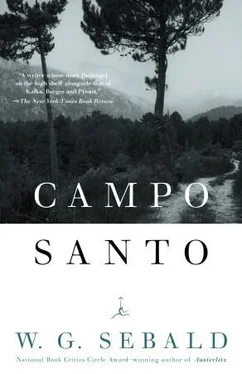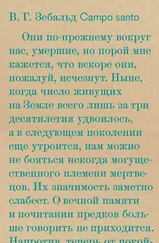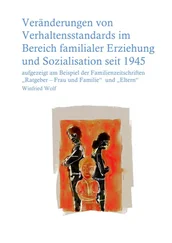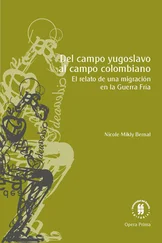Discovering the truth is thus shown to be the business of the dog described by Benjamin as the emblematic beast of melancholy, which, as Kafka too knew, “symbolizes the darker aspect of the melancholy” as well as its “tenacity.” 19
“A writer,” says Grass, reflecting with melancholy on his own profession, “a writer, children, is a man who loves fug and tries to give it a name, who lives on fug by giving it a name; a mode of life that puts calluses on the nose.” 20Despite this almost constitutional compulsion of the man of letters to carry out research, noted by the Mitscherlichs, “the real people we were ready to sacrifice to our master race have not yet appeared before the perception of our senses.” 21The fact that Grass succeeded in making up some of that deficit in his Diary is something he owes primarily to the efforts of a historian living in Tel Aviv, and that in its own turn shows that literature today, left solely to its own devices, is no longer able to discover the truth.
The Character of Hermann Ott
For this very reason the story of Hermann Ott that forms the backbone of the Diary , and is used by the author to offer the reader’s receptive imagination many consoling ideas, will not ultimately stand up to critical examination. Unlike the documentary passages about the exodus of the Jews and the electoral campaign, the writer’s own family life, and the essaylike digressions, it is pure invention although everything else relates to it. This fact, of course, is initially disguised by the repeated suggestion that we really have here an incident from the life of Marcel Reich-Ranicki which cannot at present be made public.
Hermann Ott, nicknamed Doubt, by trade a teacher and a skeptic, has been teaching at the Rosenbaum private school since state schools were closed to the Jewish children of Danzig, and still buys his lettuce from Jewish tradesmen even when the market women call him names for it. This Hermann Ott is a retrospective figure created by the author’s wishful thinking; structurally no different, if of far less fateful import, than the angelic young Father Riccardo Fontano in Hochhuth’s The Deputy who provides evidence that good still exists even in the face of mass annihilation.
In order to leave Hermann Ott’s German identity in no doubt, Grass gives us his literary alter ego’s Aryan family tree of all the way back to Groningen in the Netherlands during the sixteenth century. The implication here, as in everything we learn about Hermann Ott, is that there really were Germans of a better kind, a thesis that stakes its claim to a high degree of probability through the combination of fiction with the documentary material. Whether the good and innocent Germans leading their quiet, heroic lives in the country’s postwar literature really existed in the way suggested to the reader probably matters less, objectively speaking, than the obvious fact that, as we can read in Böll, they confined their effective activities to saying a Good Friday prayer which “even includes the unbelieving Jews.” 22
German literature of the postwar period sought its moral salvation in these fictional figures, of whom Günter Grass’s Doubt is certainly one of the most honorable, and, thus preoccupied, failed to understand the grave and lasting deformities in the emotional lives of those who let themselves be integrated into the system without questioning it.
The invented figure of the teacher Doubt, enabling Grass to develop his snail-theme of melancholy, thus functions as an alibi to counter the programmatic intention of mourning, and the real aspects of the story of the Danzig Jews once again fail to get their due, despite the aid of Erwin Lichtenstein. One of the passages in the Diary where an appearance of truth is created by the confrontation of historical reality and retrospective fiction is a passage about the transports taking those Jewish children who were able to leave Danzig to England. Faced with his own children’s questions:
“Did they have to go to school, too?”
“Did they all learn English quick?”
“And what about their parents?”
“Where did they go?” 23
Grass responds by telling them about an English journalist who came from Danzig and had accompanied him for part of the electoral campaign. To this journalist, who left Danzig at the age of nearly twelve on one of the children’s transports, pictures of his native town were still clear: “gables, churches, streets, porches, and chimes, gulls on blocks of ice and over brackish water — in chiaroscuro, like broken toys,” but “he couldn’t remember a schoolteacher by the name of Ott (known as Doubt).” 24The situation thus sketched makes one wonder whether the dominance of fiction over what really happened does not tend to militate against the recording of the truth and the attempt to commemorate it.
The Social Democratic Electoral Campaign
Another of the images of wishful thinking constructed by Grass in the Diary of a Snail is his idea of German Social Democracy, on behalf of which he undertakes all the stress and strain of a campaign trip covering 31,000 kilometers.
The first striking feature in this context is that while Grass likes to describe the prehistory and early history of Social Democracy, he says nothing about the political debacle brought about by the party in Germany in the years after the First World War. We see August Bebel in his green turner’s apron, and “Ede” Bernstein, and we are told that Willy Brandt now owns the watch that once belonged to the first party leader and that it is still in working order, details conveying a pleasing air of family solidarity with the representatives of an upright past, but we hear nothing of Ebert and Noske, to name just two of the less glorious figures. [9] Friedrich Ebert (1871–1925) was the first president of the Weimar Republic, and had become chairman of the Social Democratic Party in 1913. Gustav Noske (1868–1946) was also a prominent politician during the Weimar Republic period.
Nor is it explained to a younger generation of readers how a country which, in the late nineteenth century, produced the strongest and best-organized of all Socialist movements, came to fall into the arms of Fascism twenty to thirty years later. As Grass presents it, the historical background of Social Democracy is underexposed, merely adorned for effect with a few picturesque details and brave figures such as that of the upright Bebel traveling illegally through the country and setting the comrades an example under the anti-Socialist laws, thus of course helping the campaign of the new pioneers of Social Democracy to appear in a somewhat heroic light.
From time to time a sense of fraternity in a common cause spreads among the generation of “quadragenarians” who hope for a new political dawn and who, Grass thinks, “seem to be trying to compensate by overproduction for the reduced achievement of a few decimated war years.” 25The reader almost feels that the author finds absolution for what still irks him about the German past, although he knows himself innocent of it, in his practical commitment to a better German political system, and that only in active politics and the hectic haste of traveling — identified by Böll in his Frankfurt Lectures as a particularly German form of desperation — can he keep a little way ahead of those resolute, monosyllabic snails Guilt and Shame. 26
Dürer’s Melancholy
If the political activity in which, as Grass constantly emphasizes, he sees something more real than the construction of utopian plans, thus succeeds in warding off a despair that is moving in itself, then Dürer’s Melancholia has made her way into his traveling bag as fellow traveller and angel of his guilty conscience.
Читать дальше












